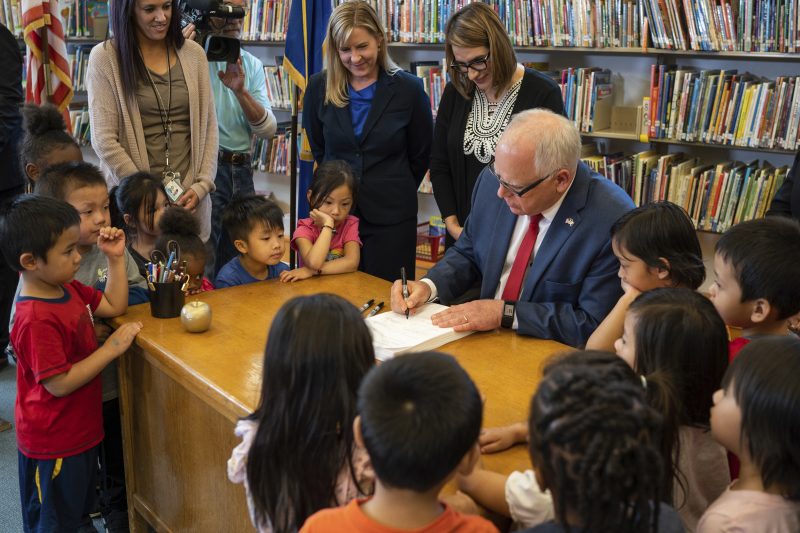In a controversial move that has sparked heated debates among education policymakers, Minnesota Governor Tim Walz has made bold decisions that have shifted the state’s education system to the left. Among his key initiatives is his strong opposition to school vouchers and his commitment to increasing funding for public schools. These actions have drawn both praise and criticism from different sectors of society.
Opposition to school vouchers has been a cornerstone of Governor Walz’s education policy. Vouchers, which allow parents to use public funds to send their children to private or charter schools, have long been a contentious issue in education reform. Supporters argue that vouchers provide families with more options and promote competition among schools, ultimately leading to improved educational outcomes. However, critics, including Governor Walz, contend that vouchers divert much-needed funding away from public schools and exacerbate educational inequality.
By taking a firm stance against school vouchers, Governor Walz has positioned himself as a champion of public education and an advocate for equal access to quality schooling. His administration has prioritized efforts to strengthen public schools by increasing funding and resources, with the goal of ensuring that all students have access to a high-quality education regardless of their background or economic status.
In addition to opposing vouchers, Governor Walz has made increasing funding for public schools a top priority. Under his leadership, Minnesota has seen significant investments in education, including increased funding for programs aimed at supporting low-income and minority students, improving school infrastructure, and expanding access to early childhood education. These initiatives are part of a broader strategy to address disparities in educational outcomes and create a more equitable education system.
While Governor Walz’s efforts to move Minnesota’s schools to the left have been applauded by many education advocates and progressive groups, they have also faced criticism from opponents who argue that his policies may have unintended consequences. Some critics have raised concerns about the sustainability of increased education funding and the potential impact on taxpayers. Others have questioned the effectiveness of traditional public schools and called for greater choice and competition in the education sector.
Despite the criticisms, Governor Tim Walz remains steadfast in his commitment to advancing progressive education policies in Minnesota. By opposing school vouchers and increasing funding for public schools, he has signaled a clear departure from the status quo and a dedication to improving educational opportunities for all students. As the debate over education reform continues to evolve, Governor Walz’s decisions are likely to remain at the center of discussions about the future of education in Minnesota and beyond.
